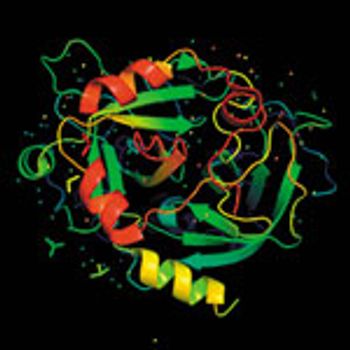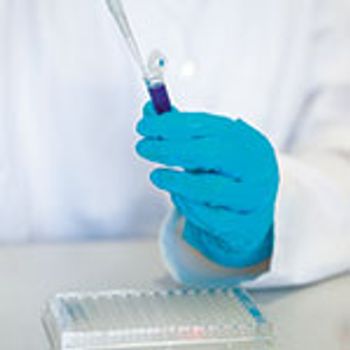
University of Southern California scientists have made an advancement in chimeric antigen receptor (CAR) T-cell therapy that seems to eliminate its severe side effects, making the treatment safer and potentially available in outpatient settings.

University of Southern California scientists have made an advancement in chimeric antigen receptor (CAR) T-cell therapy that seems to eliminate its severe side effects, making the treatment safer and potentially available in outpatient settings.

Getting the science right helps biopharma startups overcome development and commercialization challenges.

Worth up to $605 million, the collaboration will focus on studying a preclinical novel target that could lead to potential new treatments for autoimmune diseases.

Findings from the Los Angeles Biomedical Research Institute could enable a new generation of anti-infectives.

The companies announced a collaboration to jointly discover and develop treatments to address unmet medical needs in a specific neurological disease.

Mustang intends to combine an oncolytic virus with an interleukin-13 Rα2-(IL13Rα2)-specific chimeric antigen receptor to potentially enhance efficacy in treating glioblastoma multiforme.

The partners will collaborate on the development and commercialization of a B-cell maturation antigen-targeting immunotherapeutic for treating multiple myeloma.

The multi-year agreement will give Novartis access to AbCellera’s expertise and state-of-the-art antibody discovery technology for up to ten clinically-relevant disease targets.

A study funded by the National Institutes of Health has created a virtual library expected to expand the availability of “make-on-demand” molecules for drug discovery.

New platform technologies, advanced modeling tools, and addressing patient needs are important developments.

A new plasma B cell antibody discovery workflow launched by Berkeley Lights enables the shortening of antibody drug discovery from month to a day.

The new reagents are designed to support clinical-phase and commercialization stages of cell and gene therapy production and to enhance DNA transfection.

The companies aim to advance research into inflammatory bowel disease.

The acquisition will give Genentech full rights to Jecure’s preclinical portfolio of NLRP3 inhibitors.

The contract research organization has increased its US-based early phase clinical capacity and doubled its specialty lab space.

More-and earlier-interaction between R&D and payers will be essential if innovative therapies are to become more accessible for patients, and more profitable for manufacturers, said panelists at the 2018 Galien Foundation Forum.

Formulation issues cause significant drug project delays and project failures, according to a 2018 survey conducted by Informa Pharma Intelligence, Rentschler Biopharma, and LEUKOCARE.

This new partnership provides access to Distributed Bio’s antibody discovery platforms.

The agency is developing technology- and disease-specific regulatory frameworks for innovations that may not have previously had a clear development pathway.

The testing of raw materials is essential as raw material quality determines the outcome of biologic product quality.

The company says the new equipment will reduce sample turnaround times and increase variant detection quality and accuracy.

A new investigational vaccine, LASSARAB, shows promise for use against Lassa fever and rabies.

The CHF 400-million (US$416-million) investment in Lonza's biopark in Visp, Switzerland, will expand Ibex Solutions with two new offerings, drug substance development and drug substance and drug product manufacturing.

Colin Clarke, from the National Institute for Bioprocessing Research and Training, will lead a four-year European Industrial Doctoral Program for enhancing upstream biopharmaceutical manufacturing process development through single cell analysis.

Researchers at Vanderbilt University Medical Center have isolated the first human monoclonal antibodies (mAbs) that can neutralize norovirus, a virus that causes acute gastrointestinal (GI) illness.